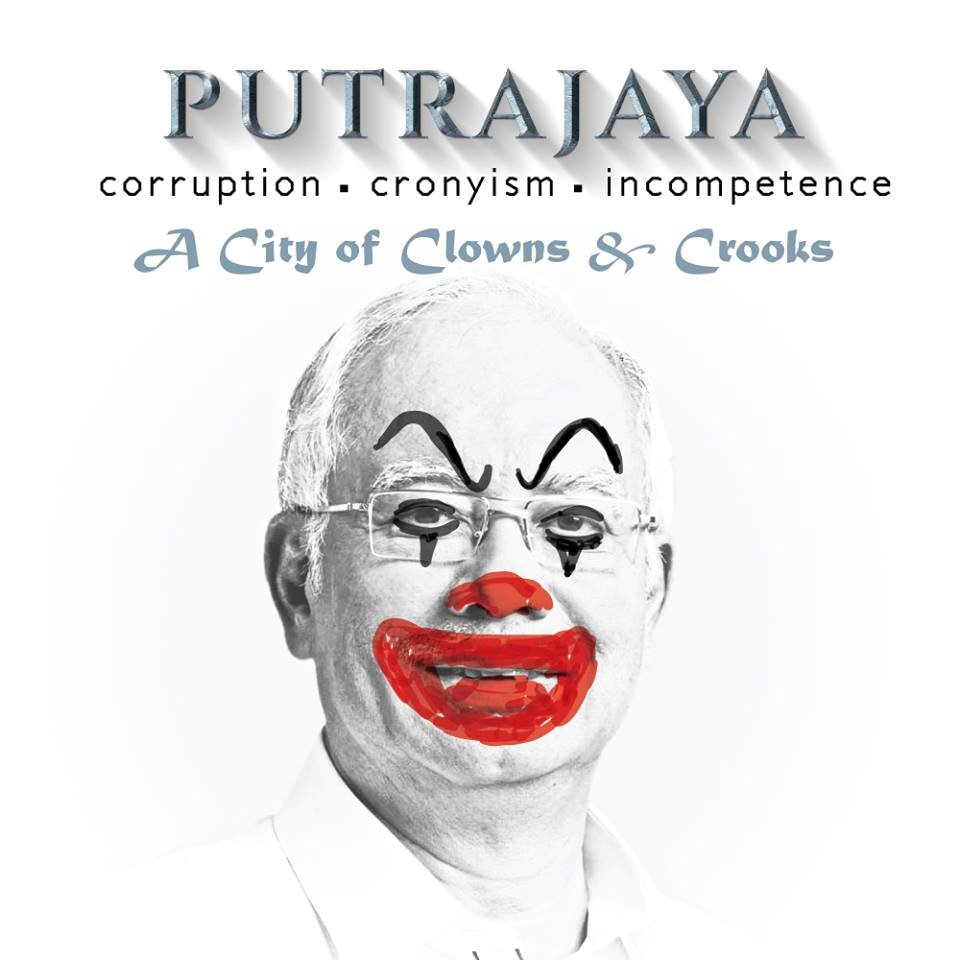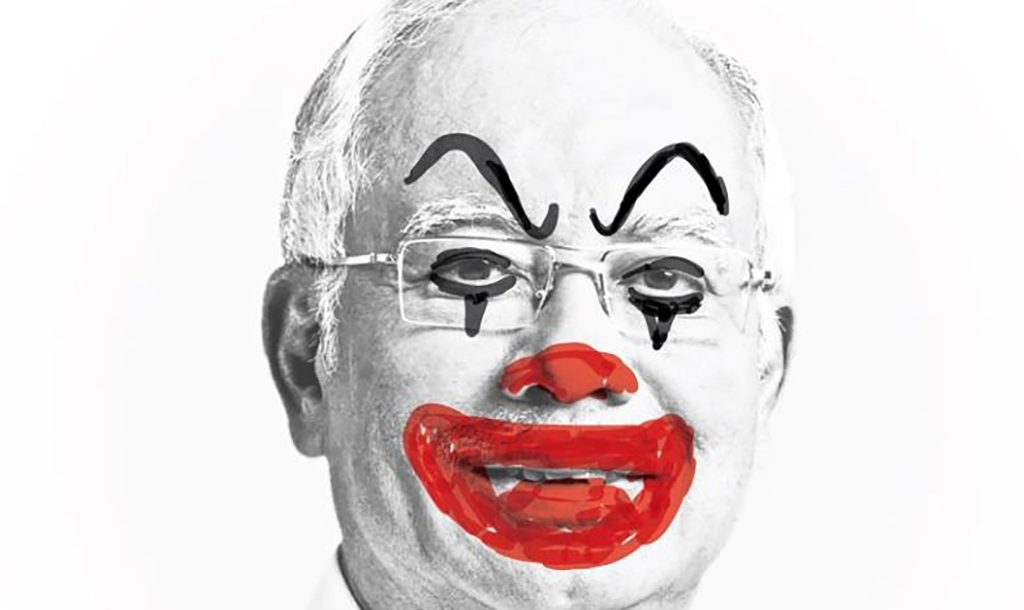Does a tacky logo point to the return of authoritarianism in Malaysia?
When institutional failures are commonplace, institutions are expected to fail. This cynical expectation may be passed off as sarcasm, but it is intrinsic to a growing sense of political detachment between the Malaysian government and the people. Worse, the authorities have a vested interest in maintaining, rather than closing, this gap, to deter more direct political participation.
Kuala Lumpur’s new logo, recently released by the city council Dewan Bandaraya Kuala Lumpur (DBKL), was never destined to be popular. Rather, it is the public’s reactions that give it currency.
When it was first unveiled online, the logo prompted ridicule. Within the span of a week, a free template was created, in addition to several step-by-step tutorials , allowing netizens to make their own version of the logo with just a few clicks. Social media was immediately awash with parodies and caricatures, with netizens customising the logo with personal or corporate names, repurposing it for reasons other than its own initial intent.
While one could however laud the creative aftermath of this controversy, the reactions in fact display more cynicism than optimism. The parodies are suggestive of a growing detachment between the Malaysian government and the people, one that amounts to acredibility gap. But this gap should not be understood solely as a problem. Rather, it is an ideological façade perpetuated by the authorities to consolidate their power.
After the negative reception of the logo, DBKL responded that the design cost RM15,000, inevitably creating a greater stir. The logo received its second wave of media coverage when Visit KL, the Tourism Unit of DBKL, released a video on YouTube(removed from the official Visit KL channel, but re-uploaded by a private organisation) showcasing a row of tin ingots gradually crackling and breaking apart to reveal the logo. The tin ingots are supposed to symbolise Kuala Lumpur’s history “as a major tin mining and trading centre”, whereas the serif font selection is supposed to display “an Islamic scripture character with a modern twist”.
Nonetheless, any clarification provided by DBKL will never suffice. Be it RM15 or RM15,000, the reactions will be the same. In Malaysia, cynicism has been thriving during most of Prime Minister Najib administration, escalating with the 1MDB fiasco. It is a symptom that has developed over an extended period of time and out of repeated institutional failures. That these failures have become a norm means that not only are failures commonplace, they are expected to be so.

The expectation of failures feeds into cynicism and the credibility gap. This phenomenon should not be underestimated. Within the broader contemporary state of affairs, cynicism becomes integral to the political economy of the nation-state. To the Malaysian authorities, failures are ideologically productive: failures, again and again, produce cynical expectation, deepen political detachment and expand the tolerance for more scandalous failures.
If the banality of repeated failures cultivates cynicism, cynicism furthers the banalisation of failures and completes the crisis of political detachment.
Far from being a standalone problem, this crisis should be read against the context of the privileging of the personal over the public domain. It is a moment where political actions become more about the individual rather than the collective. . Parodies of the controversial Kuala Lumpur logo point to this direction. Amid the breakdown of the public political realm, accruing personal cynicism can only be satiated through further individualisation of political expression. That is, in this case, through the personalisation or customisation of the logo.
The credibility gap has effectively disempowered the public and has deterred the possibility of more direct political action. The Kuala Lumpur logo controversy and the subsequent reactions are but a sign. Resistance is now impelled to operate in a separate discourse of politics, which can resist and react accordingly without the gap ever closing, because it has been decoupled from the hegemonic operation of power.
The response towards the Kuala Lumpur logo has taken up a form that fuels political detachment. Increasingly, resistance has to capitalise on this detachment for more radical advocacy. Yet, it is on the very same detachment that the hegemony of power thrives. It is in this fashion that authoritarianism in Malaysia is returning.
Through the maintenance of credibility gap and political detachment, institutional failures are constantly rehearsed to accustom the public to expecting failures with amusement rather than anger. The crisis of institutional credibility has become so ordinary that recurrent failures sit within one’s comfort zone. And as the cronies do what they do best, resistant politics can only react more radically by deepening the sense of political detachment, and implicitly, by making failures ever more tolerable.
Tan Zi Hao is a postgraduate student in the Department of Southeast Asian Studies, National University of Singapore. He is also a conceptual artist whose artworks can be viewed at www.tanzihao.net. As both artist and writer, he is interested in the arts, language, cultural politics and mobilities.
 Facebook
Facebook  Twitter
Twitter  Soundcloud
Soundcloud  Youtube
Youtube  Rss
Rss 